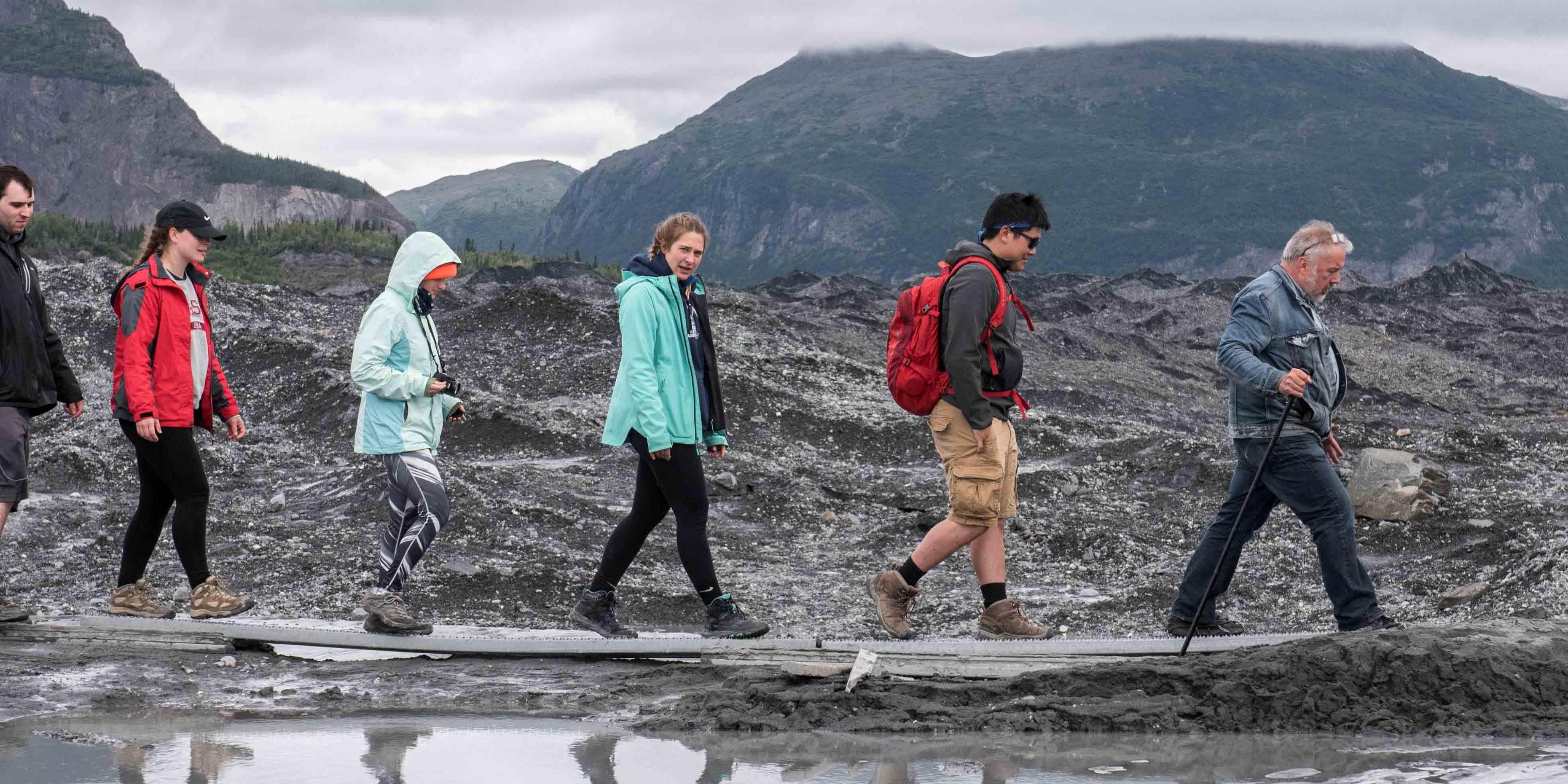
My first gig at the University of Maryland was an assistantship to Dr. Thomas Holtz, who at the time was creating the Earth, Life and Time program—the precursor to College Park Scholars’ current Science and Global Change (SGC) program. In the 19 years since, I’ve taken on many other responsibilities, including the director of undergraduate studies for the Department of Geology.
But my job with Scholars remains by far my favorite.
Upon reflection, the reasons come down to the intellectual freedom I get to craft a genuinely interdisciplinary curriculum and the diversity of impressive students Scholars has brought into my life.
Program takes knowledge out of bins
Incoming freshmen are usually conditioned to think of information as assortments of atomized factoids occupying distinct bins: biology, English literature, mathematics, and so on. An explicit goal of Scholars is to banish that way of thinking by encouraging interdisciplinary thought.
Most of us make this transition as young adults: We eventually come to the realization that knowledge, rather than being sorted into discrete categories, instead creates a network of interconnections with coherent structure and predictive power. I can remember being a college senior and experiencing a huge bump in my ability to research and write coherently once I began to make connections across subject areas.
In Scholars, we aim to bring students to this epiphany as quickly as possible. To that end, our faculty seek out the broadest possible scope of information from which to sample relevant threads and weave them together into a coherent and compelling curriculum. In SGC, for example, we focus on the reality of global climate change and the imperative need for citizens to understand and support the sciences. But to emphasize this, we take lessons not just from the physical sciences, but also from biology, psychology, economics, history and the arts.
Enjoying this freedom to creatively sample and integrate curriculum across academic disciplines is, perhaps, my greatest professional pleasure. I’ll point out that, while most people would agree that this is a good thing to do, in reality it is very difficult to achieve within the confines of a typical university academic department.
Personal bonds with Scholars
We often say that every Scholars program has something to offer to any student from any major. The corollary to this is that each Scholars program boasts very qualified students who—while united in their interest in the program’s focus—nevertheless approach it from a huge variety of academic and personal perspectives.
The result is that students both contribute to, and benefit from, Scholars. Their diversity creates a richness and complexity of thought within each Scholars program. Meanwhile, the Scholars colloquia, field trips and other activities serve as outlets for students’ intellectual creativity in ways that Calculus I, for example, can’t possibly do.
Moreover, Scholars faculty get to know students over three semesters, forming much deeper personal bonds than would be possible in a standard course. Thus, we are able to model for students the kind of relationship that they should be working to build with faculty in their majors.
The benefit to me is that I have become personally acquainted with a diversity of high-achieving, intelligent students, something that exists in few other places. Through these personal bonds, I have helped many take the next step to their careers or advanced degree programs. I also have served students informally as advisor and trouble-shooter.
Genuine admiration
The Scholars environment inspires an outstanding sense of dedication among our best students, who have given back spectacularly in service to Scholars. They inspire genuine admiration from faculty.
I can tell you that in every incoming cohort there is usually someone who is destined to be my friend for life, and I look back with pride at former students who are now successful professionals, including tenure-track university faculty.
And so, I hope to work here until they carry me out feet first.